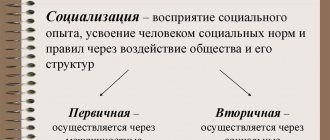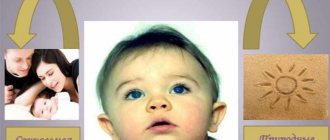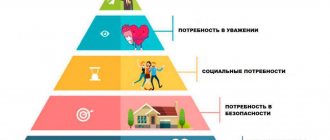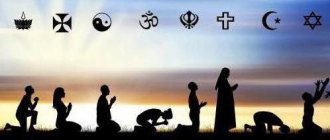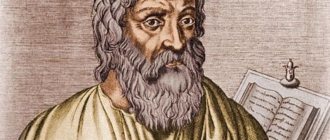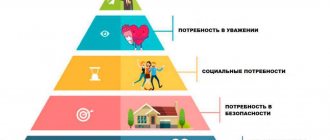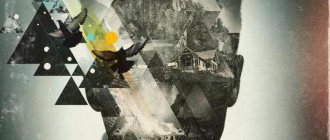Self-knowledge in a person’s life begins almost from birth. This process is quite complex in its structure. It is present in every age period of a person, but the degree of its severity varies. Self-knowledge most often intensifies during adolescence and youth. But in old age it declines, but there are exceptions.
Free online seminars you might be interested in:
>> Webinar: Secrets of the Runes
>> Webinar: Mantika, runes and forces of nature
>> Online training: Introduction to the chakra system
>> 3-day online intensive: Metaphorical cards
Results of self-knowledge and the process of self-knowledge
In the course of self-knowledge, a person gets to know himself. This knowledge can be divided into groups. For example, emotions, character traits, behavioral characteristics, intellectual properties. They are also called constructs. They form a self-image, on the basis of which the self-concept is formed.
If we highlight the general results of self-knowledge, then this is a sense of personal competence. What does it consist of? The first is the feeling that we are all similar, i.e. identical. And the second is that we accept ourselves entirely and completely, with pros and cons, positive and negative qualities. A person does not resist himself, while he has a desire to grow, develop and change something in himself, but this happens gradually.
As feelings of identity and self-acceptance emerge, self-esteem emerges. This feeling expresses the degree of sympathy a person has for himself.
And, identity, self-esteem and self-acceptance contribute to a sense of self-competence. How does it manifest itself? In the fact that a person accepts himself, his characteristics, he can make important decisions himself and determine his destiny.
ABOUT THE PROJECT
The path to inner freedom lies through self-knowledge. By recognizing, understanding and accepting ourselves, we release the unique potential with which we come into this world. And by continuing this path, delving deeper into self-knowledge, we turn this potential into a manageable resource. To a directed resource. We gain incredible power over our own lives. And we regain the freedom given to us by birthright to be ourselves. We gain the ability to realize our potential by becoming better, deeper, richer, more complete and more self-sufficient. And we make the world around us the same. Movement and development are the essence of life. Times change. People change. Ways and tools to achieve the goal too. At the present time, the “on-line” interaction format is one of the most relevant tools, including on the path of self-knowledge. We know how important it is to find mentors, experts and simply like-minded people on this difficult but incredible path of self-knowledge and self-development! We have gathered experts in various fields of psychology, esotericism and philosophy. With us you have a very valuable opportunity to undergo online training. Get access to seminars, webinars and training programs. Opportunity to communicate with our experts. Unfortunately, current realities impose some restrictions on the quality and quantity of live communication and interaction. But even while keeping up with the times, it is possible, necessary and important not to deviate from the chosen path. Be able to get what you need. On the radio “Self-Knowledge” you will find almost everything you need for productive self-knowledge, even in modern conditions. Here you will find answers to many burning questions. You will be able to structure and understand more deeply the information that you already have. Reveal and discover those directions of this path that you have already chosen. And, of course, you will discover new ones, but no less significant, important and interesting. Now the topic of self-knowledge is quite relevant and in demand. And this certainly makes us very happy. But it is quite easy to get lost in the abundance of information. The vastness of the World Wide Web is simply overflowing with it. Many of you spend a tremendous amount of effort and time to understand it. Understand where the truth is and where there are fantasies and stories. And unfortunately, this does not work for everyone and not always. We have organized a space in which there is no place for misinformation, quackery and unreliability. Our experts have spent years studying their fields. Even decades. This is colossal work. They are one of the best in the business. And now they are ready to share this treasure with you!
The process of self-discovery
The process of self-knowledge is a complete awareness of oneself, character, and essence. By the way, it is self-knowledge that distinguishes a person from other inhabitants of our planet, for example, animals. In all beliefs and religious movements, self-knowledge is defined as a means of recognizing and understanding one’s community with God. This is especially evident in Eastern religions.
It is quite simple and clear that a person determines his life path. Chooses between several options, sets a goal, performs actions, interacts with others. Thanks to this, he begins to be an interesting person, both to those around him, and he begins to enjoy spending time with himself.
Ways of self-knowledge
- Self-observation is considered the beginning of the entire process of self-knowledge. During it, a person observes himself. Using this method, a person increases his awareness. Here you must focus on what is happening inside you, on what feelings you are experiencing.
- Introspection. When you analyze yourself, you look at your behavior and reactions. You are trying to understand why you did what you did and nothing else. Psychologically, self-analysis is considered the most difficult.
- Comparison. Here a person, willy-nilly, compares himself with others. This is their nature. As a result of comparisons, a person gets to know himself better.
- Self-acceptance. Here a person accepts himself completely and without reserve. He is aware of his strengths and weaknesses and is ready to improve himself.
Types of self-knowledge
There are several types of self-knowledge. Among them:
- Analytical – has a connection with the activities of our mind;
- Creative – connected with our feelings;
- Spiritual – associated with our religion, faith.
There are also indirect self-knowledge (when a person analyzes his own behavior) and direct self-knowledge (self-observation).
Analytical self-knowledge
Analytical self-knowledge occurs as a result of knowing oneself and observing oneself. A written analysis during self-observation helps to get to know yourself better. For example, keeping personal diaries. Another way is self-confession. In this case, you need to tell yourself about yourself. Sometimes this can be quite difficult, because defense mechanisms come into play. A psychologist can help here. But reflection is different from confession, because you will simply observe the process, without any assessment of yourself.
Human creative self-knowledge
Such self-knowledge allows you to get to know yourself better through games, going to the theater, general activities and social events. For example, playing in the theater. It has a positive effect on the psyche because internal resistance disappears. After all, this is a game, and the person there is an actor. This is where deep self-knowledge occurs.
Spiritual self-discovery
In this type of self-knowledge, a person chooses a certain method of spiritual self-knowledge. This could be yoga or spiritual practices. And using this method he begins to get to know himself, to analyze his own actions.
Self-knowledge
Yu.M. Zenko
- Difficulties of self-knowledge
- Remedies for difficulties in self-knowledge
The Apostle Paul urged: “Pay attention to yourself and to the teaching; do this constantly: for by doing this you will save both yourself and those who listen to you” (1 Tim. 4:16). This delving into oneself, self-knowledge is developed gradually, it does not exist in people in a ready-made form:
- “Man does not know himself. To know yourself, you need a great habit of distracting yourself from feelings, concentrating the soul and keeping it within itself” / Christian: Augustine. About order. 1992, p.115/; “No matter how extensive a circle is, there is one middle point in it, towards which everything inclines, called by geometers the center, and although the parts of its circumference can be infinitely divisible, there is no other point in the circle from which all the others are at an equal distance and which would dominate over all... Go out from here into any part of the circle, and you will lose everything by which the multitude is held in unity. So the soul, having poured out of itself, is scattered in a certain infinity and exhausted to the point of complete poverty, since its nature forces it to seek one thing in everything, and multitude prevents it from finding it” / ibid., p. 116/;
- “we are far from ourselves, and we have little desire to get closer to ourselves, but we keep running away so as not to meet ourselves and exchange the truth for trinkets and even think: I would be glad to do spiritual work or prayer, but there is no time, troubles and worries about life they don’t give time for this activity” / Christian: Candid stories. 1991, p.93/.
Meanwhile, the relevance of self-knowledge for every person and all of humanity can hardly be overestimated: “This is not a luxury... it is an urgent necessity of life. Because if a person today does not know himself, then perhaps this century or the coming century will be the last in the millennia-long history of people” / Ch. 1: Men. 1993, p.83/.
Such a great importance of self-knowledge and knowledge in general presupposes the presence of the right approach to them: on the one hand, it is necessary to pay due attention to them, on the other hand, there should not be an obsession with them. The latter, for example, happened in Gnosticism, which exaggerated the role of knowledge (“gnosis”). In addition, incorrect cognition is also possible. For example, knowledge without thanking God or knowledge without love.
The first was characteristic of the pagans, about whom St. Paul wrote: “But because they knew God, they did not glorify Him as God and were not grateful, but became futile in their speculations, and their foolish hearts were darkened; calling themselves wise, they became fools, and changed the glory of the incorruptible God into an image made like corruptible man, and birds, and four-footed creatures, and creeping things - then God gave them up in the lusts of their hearts to uncleanness, so that they defiled their very bodies. They exchanged the truth of God for a lie, and worshiped and served the creature instead of the Creator...” (Rom. 1:21-25).
Knowledge without love is assessed no less negatively from a Christian point of view: “If I have the gift of prophecy, and know all mysteries, and have all knowledge and all faith, so that I can move mountains, but do not have love, then I am nothing” ( 1 Corinthians 13:2).
Self-knowledge is often talked about in non-Christian religious traditions: ancient Greek religion, Taoism, Buddhism, Islam. "Know yourself!" – read the famous ancient Greek inscription. “Whoever knows his soul knows his Lord,” says the Sufi tradition /add.: Zhukovsky. 1895, p.20/. But, of course, there are sufficient differences between different religious movements in the approach to self-knowledge.
This especially applies to Eastern religions, which are based on the concept of the emptiness of the self. According to this view, there is no self, no human soul, no personality. It is clear that self-knowledge in this form, as knowledge of the illusory nature of one’s “I,” is diametrically opposed to Christian self-knowledge, as knowledge of one’s substantial and immortal soul.
In addition, we must keep in mind that the concept of self-knowledge is often used in a variety of different contexts. This, for example, happens in analytical or depth psychology, founded by Carl Jung. Here is a quote that praises his contribution to the cause of self-knowledge: “When considering Jung’s contribution to the development of our culture, one merit, it seems to me, becomes obvious to me. Jung gave a clear answer to the most pressing psychological need in our culture for self-knowledge, which exists from Oedipus to Socrates, Hamlet and Faust. Jung not only took the maxim “know thyself” as the leitmotif of his life, but also gave a method by which each of us can answer the basic question of self-knowledge. It is in Jung that we can find the answer to the question that is the main stimulus of any psychology in general - how to know yourself...” /add.: Hillman. 1997, p.65/. But in fact, everything is quite the opposite, and this is a fundamental point: self-knowledge is not an epistemological, but an ontological problem. Psychological self-examination without purification and without the gracious help of God is not true self-knowledge, or even self-knowledge in general. Psychological methods of analysis are not enough to illuminate the depths of the human soul in which negative spiritual entities reside. As a result of this, such “self-knowledge” turns into self-deception and indulgence in one’s sins and weaknesses, and, ultimately, into communication with demons. This is clearly demonstrated by the example of Jung himself.
Some of this is no secret to Jung's followers. Hillman himself writes a few pages later: “there are multiple answers to all the basic archetypal questions depending on the god and the mythological system that determines our answer, dispassionate and Apollonian, abstract and Saturnian, in the form of Dionysian discharge or divine love, heroic deeds or Hephaestus artifacts . Apparently, there is no single way of self-knowledge...” /add.: Hillman. 1997, p.70/. It is not surprising that in his long enumeration Hillman forgot Christianity, only hinting at it with a phrase about divine love - between “Dionysian détente” and “heroic deeds.” Ultimately, he “puts religious introspection apart” /ibid., p.71/ and in fact does not consider it at all.
Let us now dwell on the Orthodox Christian tradition of self-knowledge. The first and most important duty of a person in Christianity is the duty to love God, to know Him correctly and to honor Him worthily / Christian: Solyarsky. 1892, p.88/. Duties to oneself and to one’s neighbors are inextricably linked with duties to God. And just as in the duties of a Christian to God, the first place is occupied by the knowledge of God, so in the duties to oneself, the first place is occupied by self-knowledge, without which no other duties to oneself can be properly fulfilled / ibid. p.190/.
Therefore, self-knowledge is certainly very important, as many Christian authors have written and are writing about:
- “The most beautiful and most important of all sciences is undoubtedly self-knowledge. Because he who knows himself will come to know God” / Christian: Clement of Alexandria. Teacher. 1996, p.213/;
- “Why do you measure water by a handful, the sky by a span, and all the earth by a handful (Ps. 40:12) - do you measure the great elements, measured for the Creator alone? First of all, know yourself, consider what is in your hands, who you are” / Christian: Gregory the Theologian. T. 1. 1994, p. 477/;
- ““Be attentive to yourself” so that you can distinguish between what is harmful and what is salutary” / Basil the Great. In words... 1911, p.92/; ““Pay attention to yourself,” that is, pay attention not to what is yours and around you, but to yourself alone; for we ourselves are different; the other is what belongs to us, and the other is what is around us” /ibid., p.93/. Why “search into yourself with all possible care”? To give to each part of the human being what is necessary: “for the flesh - food and coverings, and for the soul - the dogmas of piety, decent behavior, exercise in virtue, correction of passions...” / ibid., p.93/;
- “All the saints were distinguished by strict, accurate and correct psychological analysis (analysis, knowledge): apostles, saints, martyrs, saints, unmercenaries, holy fools for Christ’s sake, pillars...” / John of Kronstadt. 1997, p.51/;
- “Without self-knowledge, true moral activity in relation to oneself, other people and God is impossible...” / Nikanor (Kamensky). 1898, p.3/.
Self-knowledge of a Christian consists in correct knowledge of our human nature, its various dispositions, powers and properties and their various developments and states in general, in knowledge of all this in oneself in particular. Such self-knowledge is an important and necessary duty of every Christian. As the famous Christian ascetic of the 6th century Abba Isaiah writes: “Know yourself, and run away from what is destructive for you” / Christian: Isaiah Abba. 1883, p.51/.
Many other Christian ascetics and modern theologians also agree with this:
- “Self-knowledge is the correct concept of one’s spiritual age...” / Christian: John Climacus. 2001, p.175/; “he who knows himself is never scolded to undertake a task beyond his strength” / ibid., p. 177/;
- “That is why we are gifted with intelligence, so that we know what we should do; and the admonition “Know thyself” in this case means nothing more than the following: “Know for what end you were all created.” We were created and placed in this world in order to be faithful fulfillers of the commandments, if we want to inherit salvation” / Christian: Clement of Alexandria. 1892, p.20/;
- “Let us continually examine ourselves, in relation to all passions and virtues, in order to find out where we are: whether at the beginning, in the middle, or at the end” /Christ.: John Climacus. 2001, p.193/;
- “Find out what is hidden in your heart. Look there often, and you will see that in him there is pride, arrogance, pride, love of money, anger, envy, love of glory, uncleanliness, desire for revenge, and all kinds of sinful abomination” / Christian: Tikhon of Zadonsk. T. 11. 1837, p. 160/;
- “self-knowledge is necessary; it is knowledge of oneself and especially the limitations of one’s abilities, one’s shortcomings and lack of art” / Christian: Nazarius. 1885, p.72/;
- “The first step is to know yourself. Sin is division within ourselves and division in relation to others... / Christian: Metropolitan Anthony. Surozhsky. 1997, p.7/.
Sober self-knowledge leads a person to very sad conclusions: “Carefully turning my gaze to myself and observing the course of my inner state, I became experimentally convinced that I do not love God, have no love for my neighbor, do not believe in anything religious and am filled with pride and voluptuousness.” /christ.: Frank stories... 1991 p.24/.
Self-knowledge is connected with conscience: “examine yourself, not in the exaltation of false knowledge of external wisdom and not under the accumulation of vain thoughts, with fear and trembling” / Christian: Simeon the New Theologian. T. 1. 1993, p. 409/; “If you want to know what your life is like and what your condition is, ask your soul and tell it: soul, have you fulfilled all the commandments of God or not? And she, having opened the mouth of her conscience, will certainly tell you the real truth” /ibid., p.409/.
True self-knowledge is impossible without humility:
- “Of course, we do not think that a person is able to know himself through the methods of discrimination, inference and dissection, unless through difficult repentance and intense struggle he first expels pride and guile from his own mind. Because whoever does not lead his mind in this way and to such a structure will not even see his ignorance, but only with this does successful self-knowledge begin” / Christian: Gregory Palamas. 1995, p.73/;
- “Everyone who knew himself, rested from all his work... and entered the sanctuary of God, into the mental worship of the Spirit and into the divine refuge of dispassion and humility” / Nikita Stifat. 1900, p.122/. “Know yourself; and this is truly true humility, teaching one to be humble and contrite the heart...” / ibid., pp. 121–122/. “When someone comes to know himself, and this requires a lot of outside guarding, abstinence from worldly affairs and a strict examination of conscience, then immediately and suddenly a divine kind of humility comes into the soul, something more than a word, bringing contrition to the heart and tears of warm tenderness: so that then the one experiencing it action within itself considers itself earth and ashes...” /ibid., p.122/.
From self-knowledge comes the prayer: “Only the one who has seen his Soul with his inner eyes and knows its dignity, only he, with the help of God’s Power, sees and knows his terrible fall. And what a mysterious vision this is - to see your disembodied soul, God's Intelligent Beauty, and see it in the mantle of passions, to see it in the stinking rags of lust and sin. This vision can be amazing, indescribable, divine. This vision gives birth to an unceasing cry: “Have mercy on me, O God, have mercy on me!” / Christian: Zhuravsky John. 1996, pp.75–76/.
True self-knowledge leads to humility, kindness and mercy, for whoever knows the full depth of his sins will not be exalted above others. This destroys the reason for such an important sin as judging others. Therefore, “everyone should take care of his own mental illnesses, and everyone should mourn his sins, not despising his neighbor” / Christian: Isaiah Abba. 1883, p.62/; “Therefore, Christians themselves must use every effort, but not condemn anyone at all, neither an obvious harlot, nor sinners, or disorderly people, but look at everyone with simple-minded will, a pure eye, so that a person turns into something natural and indispensable - no one not to humiliate, not to condemn, not to disdain anyone and not to make distinctions between people... For this is the purity of the heart, so that, seeing sinners or the weak, have compassion for them and be merciful” / Christian: Macarius of Egypt. 1998, p.113/.
This is an important difference between Christian self-knowledge and pagan self-knowledge. St. Gregory Palamas writes: “I will reveal to you the monstrous depth of the deceit of external philosophers. The evil one and those who learned from him to philosophize craftily have stolen one of our most useful commandments and present it as some kind of crafty bait thanks to the similarity of the expressions “Listen to yourself” and “Know yourself” / Christian: Gregory Palamas. 1995, p.18/. This refers to the comparison and contrast of the ancient Greek principle of “knowing yourself” and the expression “take heed to yourself” (Deut. 15:9), often used in the patristic tradition, as it sounds in the translation of the 70 and in the Slavic translation (Synodal Russian translation of this place sounds like this: “Beware lest a lawless thought enter your heart”).
According to Gregory Palamas, pagan authors used the call to self-knowledge as a bait: “But if you figure out what the meaning of this commandment is for them, you will discover the abyss of evil teaching: professing the transmigration of souls, they believe that a person will achieve self-knowledge and fulfill this commandment if he knows what body was associated with before, where he lived, what he did and what he studied; he will find out this, obediently surrendering to the insidious whisperings of the evil spirit” / ibid., pp. 18–19/.
Self-knowledge is also necessary in the matter of knowledge of God and worship of God. He who does not know himself cannot correctly know God and, therefore, cannot fulfill his duties to Him:
- “Whoever knows himself knows God. He who knows God renders him proper worship.” /Christian: Anthony the Great. 1826, p.165/;
- “Do you want to know God? Know thyself first” /Christ.: Nile, teacher. 1827, p.171/.
- “Accurate observance of yourself will give you sufficient guidance to the knowledge of God. For if you “pay attention to yourself,” you will not have the need to look for traces of the Creator in the structure of the universe, but in yourself, as if in some small world, you will see the great wisdom of your Creator” / Basil the Great. In words... 1911, p.98/;
- “But, oh, my brothers and fathers! I beg you, may each of us strive to first know ourselves, so that later we will have the opportunity, sometimes from what is within our limits, to know what is above us. For whoever did not first know himself so that he could say with David: I am a worm and not a man (Ps. 21:7), and with Abraham: I am earth and ashes (Gen. 18:27), he will not can cognize anything of the spiritual and divine spiritually and worthily, and as befits the supernatural and wise Spirit” / Christian: Simeon the New Theologian. T. 2. 1993, pp. 342–343/;
- “Through this knowledge of himself and nature, a person must know God...” / Mikhail (Desnitsky). 1819, p.4/;
- “Before anyone desires to know God, he must know himself: for it is not possible to know the Highest Being unless we recognize our own humiliation” / Christian: Kandorsky. 1798, p.10/.
It is from within, through his soul, that a person comes to God: “How the bodily senses, since the body is mortal, see the mortal; Thus, the soul, contemplating the immortal and thinking about the immortal, must itself be immortal and live forever. For the concepts and contemplations of immortality will never leave her, remaining in her and serving, as it were, as an incentive to maintain immortality. Therefore, the soul has the concept of contemplating God, and it becomes a path for itself, not borrowing from outside, but drawing within itself knowledge and understanding of God the Word” / Christian: Athanasius the Great. T. 1. 1994, p. 170/.
True self-knowledge is not just some kind of abstract self-deepening, but the knowledge of Christ in oneself: “The Son of God came down and received a soul, not so that the soul might know itself in Christ, but so that it might know Christ in itself. For the danger threatens her not from ignorance of herself, but from ignorance of the Word of God: In Him, says [the apostle], life was revealed to you (1 John 1:2), and not the soul, and so on. “I came,” He says, “to save a soul (Luke 9:56),” but He did not say “show”” / Christian: Tertullian. 1994, p.175/.
True self-knowledge is so important that it is necessary for the correct knowledge of others and the correct love and respect for them. He who does not know himself will never learn to know and understand them correctly, treat them properly, love and respect them. Self-love, pride and other similar vices that remove a person from God and his neighbors are always based on an incorrect concept of oneself, or ignorance of oneself (Luke 18:11; Rev. 3:17). On the other hand, knowledge of oneself can occur not only through self-research and self-contemplation, but also through self-disclosure in deeds and actions, that is, in relation to other people /add.: Kulikov. Psychology of mood. 1997, p.184/.
The main forms of self-knowledge are realized through introversion, turning to one’s inner world. This is not so easy to do: “we spend our entire lives, from childhood to old age, for the most part outside ourselves, chasing after material benefits, now after external splendor, now after acquisitions in the field of sciences and arts, now even after the most empty and fruitless pleasures; but we don’t want to go home and see what we have and what we don’t have, what is being done and what is not being done, what is required in internal life for external life, and how to acquire these conditions” / Karpov. 1860, pp. 18–19/. Usually a person knows not himself, but his own, which he takes for himself /ibid., p.20/
St. John of Kronstadt urged: “Look more carefully, deeper into your inner, mental or spiritual world, full of the greatest mental and moral interest, and do not get carried away by the external, material, transitory and disappearing world... In that inner world you have much, much to do and efforts due to the perversion of our spiritual order or the laws of creative and mental and physical corruption” / John of Kronstadt. 1991, p.57/.
From external asceticism - to internal thought of God, from silence of the lips - to silence of the mind, from solitude - to unity with God, from external activity for the good of humanity - to internal enlightened love for people: this is the path of the Christian ascetic / Christian: Hilarion (Alfeev) . 1998, p.95/.
Christian saints teach Christians self-knowledge by their example. Self-knowledge was primarily the task of holy hermits and desert dwellers. Having retired from the world, they monitored their every thought, every movement of their soul, they were able to distinguish the most subtle shades of their thoughts, in the desires and movements of the heart; Through this they themselves achieved high spiritual perfection, and were able to lead others to this perfection. As Bishop writes. Ignatius (Brianchaninov): “The holy monks, having achieved, in the light of Divine grace, a self-view to which self-delusion can no longer give the incorrectness and darkness that it imparted to philosophers, led by the spirit of this age, the spirit of lies and delusion, became the only true psychologists” /Christ. : Ignatius (Brianchaninov). T. 3. 1993, p. 295/.
From the depths of his spiritual experience, St. fathers advise:
- “Pay attention to yourself and recognize the actions that took place in you from humility and crying, and notice what benefit they bring you every hour” / Christian: Simeon the New Theologian. Creations. T. 2, p.525/;
- “Be always attentive to yourself... Constantly enter into yourself and see: which passions, according to your observation, have become exhausted before you, which of them have disappeared and completely retreated from you, and which of them have begun to fall silent due to your spiritual health, and not as a result of removing what troubled you, and which ones have you learned to overcome with your mind, and not by depriving yourself of what serves as a reason for them? Pay attention also to whether you really see that in the midst of the festering of your ulcer, living flesh, that is, the spiritual world, began to grow. Which passions are gradually and which are promptly compelled, and at what intervals?” /christ: Isaac the Syrian. 1993, pp. 189–190/.
Self-knowledge in our time is important not only at the individual, but also at the national and even global human level. God's providence extends to individual people, to all humanity, and to individual “kingdoms and nations” /Christ.: Macarius (Bulgakov). T. 1. 1999, p.582/. Therefore, everything that we said about self-knowledge in relation to an individual applies to the entire people, who must, through self-knowledge, carefully study the ways of God’s providence in relation to him /additional: Krasin. 1917, p.848/. Self-knowledge of the people is a reliable way to prevent nationalism and national selfishness, for a people who have recognized their weaknesses will not highlight their merits and exalt themselves above other peoples.
Stages of self-knowledge
A person gets to know himself throughout his life. At each age stage, corresponding stages of self-knowledge occur.
- Self-recognition
Self-recognition is the initial stage of knowing yourself. It begins almost from the moment of birth. The child understands that he lives as a separate person. Look in the mirror, he recognizes himself.
- Self-concept
Self-concept is a person’s very stable understanding of himself and his characteristics. This concept is formed in the process of various life events.
- Self-esteem
Self-esteem determines how significant a person is to himself, how important his activities are, recognizing all the pros and cons. Here, the achievements of the person himself and his assessment by the people around him occupy a significant position.
Values in self-knowledge through yoga practice
Thanks to yoga and various spiritual practices, people can understand their inner world and become more aware of themselves. In yoga there are several steps that you need to go through. Thus, a whole list is formed, thanks to which a person has his values in order; a special place there is occupied by spiritual values, to which he strives throughout his life.
Need for self-knowledge
People often ask questions about the meaning of life and true values. How can a person understand himself and those around him? Such questions are the basis for the need for oneself. This need is inherent in every person. People are in an eternal search for the meaning of life; it comes first for them. After all, until we understand the meaning of life, we will not learn to understand ourselves.
Inner peace and self-knowledge
Where is the meaning of life? It is logical that it is inside us, not outside. When we understand this, our lives begin to change. From here appear monks who sell their Mercedes and say goodbye to their past life. It's not that simple here. Such people choose the path of spirituality, not because they feel like it right now, but in a week they will return back to their normal life. Here we are talking about the fact that they follow the path of spirituality throughout their lives.
Personal growth as a stage of self-knowledge
As a person develops, his or her level of self-knowledge increases. For example, at the beginning the child learns to distinguish himself from other people. Further, as he grows up, he develops beliefs about himself. And then he finds motivation that encourages him to improve his life and develop.
The path of self-discovery
The path of self-knowledge is so close, and at the same time its horizons are boundless, that a person sometimes does not know where to begin his journey on the path to himself. But you just need to start, awaken the desire for self-recognition, internal growth of yourself as a person, and at the same time a passion for self-improvement will appear. They are like twins: they are similar to each other, the development of one implies the inclusion of the other in the work. Self-knowledge cannot live without self-improvement.
Self-improvement - the desire to achieve the Absolute, getting closer to the ideal
The process of self-improvement is immanent in human nature to the same extent as self-knowledge. The pursuit of ideality is what we live for. Perhaps this is said loudly, and yet every person has a thirst for self-realization, we cannot underestimate this. Due to the desire to realize oneself through various aspects of life, a person constantly strives to improve his knowledge and skills. On this road, he also reconsiders his goals, which are based on values.
Changing value categories leads to transformation of the personality itself. Often the process of transition, finding oneself, is accompanied by changes in a person’s external life: his environment, friends, place of residence, and occupation change. One thing remains unchanged - the desire for self-improvement through self-knowledge.
Methods of self-knowledge
Self-knowledge occurs at the moment when a person begins to realize that he is different from others. What methods does the person use?
- Personality modeling. This method detects emotions. Positive and negative emotions and feelings towards people that contribute to successful cooperation or provoke conflicts. This method allows you to assess your position in the world around you.
- Method of unity of antipodes. Thanks to this method, a person understands that he has a positive attitude towards someone and a negative attitude towards someone. You definitely notice that you behave differently with different people.
^ Remedies against difficulties in self-knowledge
To remove obstacles and achieve self-knowledge, the following is necessary. First, one must realize the very importance of self-knowledge and have a true and strong desire to know oneself correctly.
Secondly, you must more often distract your spirit from everything external, from the entertainment of external life, go deeper within yourself and place yourself in the presence of the omnipresent and omniscient God.
Thirdly, you need to carefully and impartially observe yourself in all the various circumstances and relationships with life from different sides and in different moods. We must observe our internal movements, the way we think, feel and desire, and the way they manifest and act. Observe ourselves both in the soul and in outer life, and correctly distinguish between what is ours in us - spiritual, heavenly, and what is external, sensual, earthly. According to the apt biblical word: “the soul of a person sometimes says more than seven observers sitting on a high place of observation” (Sir. 37:18)
Fourthly, we must observe other people, which leads to correct knowledge of ourselves (our best and worst sides).
Fifthly, we must patiently listen to the judgments of other people about us, especially sensible and well-intentioned people who wish us true good. These judgments can sometimes reveal to us sides of us that we ourselves would not have noticed in ourselves.
Sixthly, we must more carefully study the science of the human soul, that is, psychology, verifying its teachings with our own experience and observations / Christian: Solyarsky. 1892, p. 193/ - meant pre-revolutionary, non-atheistic psychology. After a critical analysis, it would certainly be possible to use some of the experience of modern academic psychology, since it cannot be indiscriminately denied in its entirety.
Seventh, we must be more attentive to external nature. A look at it, on the one hand, humbles our pride, allowing us to see how weak and limited our strength is, how insignificant all the successes of our knowledge are, how short and fleeting our life is. On the other hand, nature introduces us to ourselves and that which awakens in us a sense of true dignity, showing us that we enjoy the special love and goodness of God, being endowed with special gifts and advantages over everything seen.
Eighth, you need to examine your conscience more often and impartially, which is especially approved by St. fathers. Only it should take place not according to worldly rules, but according to the teaching and example of the life of the Savior.
Ninth, in such a difficult matter as self-knowledge, it is impossible to achieve success without higher help, without constantly turning to God with prayer for support and help.
Tenth, true self-knowledge is impossible without help and teaching: “if someone does not take care in advance, through long prayer, with almsgiving, fasting and vigil, to know himself and his weakness, then he cannot know that without a spiritual father, a leader and teachers, it is impossible for a person to keep God’s commandments as he should, to live completely virtuously and not be caught in the snares of the devil” / Christian: Simeon the New Theologian. T. 1. 1993, pp. 107–108/. The teacher of every Christian in his self-knowledge in a broad sense is the Church: “The Church is the most clear, pure, perfect source of self-knowledge... the source of all true knowledge, perfect wisdom, the teacher of perfect community life” / Christian: John of Kronstadt. 2001, p.93/.
Eleventh, true knowledge of oneself is, first of all, awareness of one’s weakness / Christian: Maximus the Confessor. Four hundred chapters about love. 1900, p.272/. This is the very first step on the spiritual path, and it is possible only with the help of God:
- “The first spiritual vision is the vision of one’s sins, hitherto covered by oblivion and ignorance” / Christian: Ignatius (Brianchaninov). T. 3. 1993, p.55/;
- “to feel your sins is God’s gift...” / Christian: Isaac the Syrian. 1993, p.228/.
Means of self-knowledge
Knowing the methods of self-knowledge, a person begins to use means of self-knowledge that help him develop his spiritual world. Such tools help you better begin to understand yourself.
- The first means is self-report. You can start a personal diary or blog where you can analyze the changes taking place in your life.
- Cinema, books, theater. It is necessary to read, go to shows, developing spirituality.
- Attending social and psychological events. Trainings help you to know yourself better.
- Don't be afraid to consult a psychologist. This is not a doctor, he will simply help you understand yourself better.
Self-knowledge and self-esteem
Self-esteem is one of the components of self-knowledge. A person evaluates himself and builds his own value system. Self-esteem can be normal (adequate), underestimated or overestimated.
It's no secret that arrogant people are too self-confident and have low self-criticism. Low self-esteem causes timidity, making a person withdrawn and shy. And adequate self-esteem allows a person to be confident in himself and evaluate his capabilities and strengths without distortion.
Self-concept theory as a stage of self-knowledge
When a person has formed an idea of himself, it is called self-concept. It includes: the personal “I” and the social “I”. The first shows how a person sees himself. And the second is how other people understand it.
This theory is based on two aspects: the desire to come into harmony with oneself and the opportunity to raise one’s self-esteem.
Self-concept has 2 vectors:
- objective is how we perceive ourselves in our lives;
- aspirational is a desired image of how we want to be perceived.
A person will always strive for the desired image in his life. This image can be based on a person in the past and at the present moment. Now the person has achieved significant results. Over time, the distance between the desired and the actual will shrink until it disappears.
Why is self-knowledge necessary?
Getting to know yourself is interesting and useful. This helps you get rid of disagreements within yourself, understand what you really want to get from life and what a person’s role is in society. Self-knowledge teaches you to make the right decisions, make choices, and determine priorities. Developed skills of self-esteem and self-control lead to a noticeable improvement in relationships with family, significant other, colleagues and other people encountered along the path of life.
By perceiving himself adequately, a person learns to truly enjoy life. His desires are not spontaneous, but clearly thought out, and therefore feasible. His goals are aimed not only at achieving material wealth, but also at spiritual improvement. Finally, a person who knows himself becomes truly happy.
Both psychology and esotericism help you master self-knowledge skills. Psychology provides a scientific basis, and esoteric practices reveal spiritual potential.
Self-discovery exercises
These exercises allow you to better understand yourself. Thanks to them, a person improves himself.
For example, you can perform the exercise “4 squares of the psychology of consciousness.” You need to divide a sheet of paper into 4 squares. In the first you need to write your positive traits and qualities, in the third you need to write what you think are negative qualities. Then you need to write in the adjacent squares the antipodes of these qualities, completely opposite. You need to be as honest with yourself as possible and understand that there are no absolutely ideal people and personality traits. You should improve yourself and focus on the positives while working on the negatives.
Books for self-knowledge
In conclusion, we invite you to get acquainted with a selection of books about self-knowledge. They will help those who are already engaged in the study of self-knowledge, as well as those who are just starting.
- Colin Tipping "Radical Forgiveness";
- Jen Sincero "NOT SY";
- Eric Berne "Games People Play" People who play games";
- John Gray "Men are from Mars, women are from Venus";
- Viktor Frankl “Say Yes to Life!”;
- Kate Peterson “Live and Learn”;
- Richard Bach "Illusions".
A site for self-development, self-knowledge, personal growth and spiritual improvement. Stanislav Milevich
You ended up here as a result of your search for something that could change your life for the better. But what is “better”? — Subconscious assessment that now is worse than it could be. But what happened has already happened and could not have happened any other way, but the assessment made that “it could have been better” gives rise to rejection of what is happening and brings pain and suffering to life. Desire for the best takes thoughts away from the present, makes the mind restless and prevents you from seeing the good that is already happening now. Because of such inattention, harmless life situations begin to seem like problems:
• Someone, trapped in his own mind, lives in captivity of experiences and depends on the whims of his mood.
• Someone is tormented by constantly arising fears and worries that prevent them from enjoying life.
• Some people torment themselves with memories that bring pain and suffering.
• Someone is unable to control his irritability, hurts loved ones, but cannot help himself.
• Someone has problems in relationships: at home, in the family or at work.
• Some people cannot achieve financial well-being, while others, having achieved it, realized that you can’t buy happiness.
• Perhaps someone wants to gain spiritual experience and follow the path of heart and love, and someone wants to understand their religious beliefs.
• Someone is tired of spinning like a squirrel in a wheel, and he is looking for a way to break out of the routine of everyday life.
• Someone is not satisfied with the scenario of their life, and they would like to change it, but do not know how to do it.
• Someone is looking for a lifeline in an attempt to get rid of some suffering, illness or illness.
• Someone realized that visiting doctors or psychologists gives, at best, only temporary relief, and decided to help himself by changing himself, but does not know where to start.
• Someone is confused in his desires and, realizing that the fulfillment of desires does not make him happy, wants to figure out what his desires lead to and what he really needs.
• Someone has learned about the power of intention and wants to learn how to create their life consciously.
• And someone, having discovered the transience and fleetingness of happiness when achieving a goal, decided to understand himself and become free from dependence on his mind.
For those who are in no hurry to blame the world for imperfection, realizing that the causes of all problems lie only in it, this site can become a true guide to eliminating problems. All problems exist only in the mind, only their projection is visible outside. And problems need to be eliminated not in the outside world, where their shoots are visible, but where their roots are - in the beliefs existing in the mind.
Uncontrolled collection of information, taking on faith other people's beliefs without appropriate research, sooner or later leads to confusion in the mind and conflicts of beliefs, manifested as fears, worries, worries, and irritability.
Knowledge is like things that you acquire and put in your house. Often, based on considerations formed from other people's opinions, you can inadvertently purchase something you like that is not necessary. Time passes, and you buy the next thing, putting the old one in the corner as unnecessary. Then everything repeats again, and at one fine moment you suddenly notice that your house has turned into a dump of old and unnecessary things, and you practically have nowhere to live. And then you clean up the house, throwing out everything unnecessary. In the same way, you should put things in order in your mind, sort out what has accumulated, get rid of unnecessary things - beliefs that are hopelessly outdated and now work against you. After all, attachment to the old and no longer unnecessary prevents you from going beyond limiting concepts, thinking and acting freely, and finally realizing why you came into this world and what you really want.
Searching for the necessary teachings in an endless stream of information can take a lot of effort and time, which you do not have unlimited resources. Therefore, you should use them rationally, just as when you go to a store, you should not buy what you want, but only what you need.
This site was created to help you find the shortest way to solve all your problems and get rid of suffering and illness. Those who can look beyond words will find here the pointers and the key to that cherished door that leads to liberation from dependence on the whims of the conditioned mind. The desire to know yourself, to comprehend your true nature is a sure way to forever get rid of misunderstandings that bring pain, suffering, fears, worries, worries, and fill your world with the light of love.
Stanislav Milevich
Author: Stanislav Milevich
Read by: Sergey Gritsov
Size: 8.23 MB
Duration: 09:00
